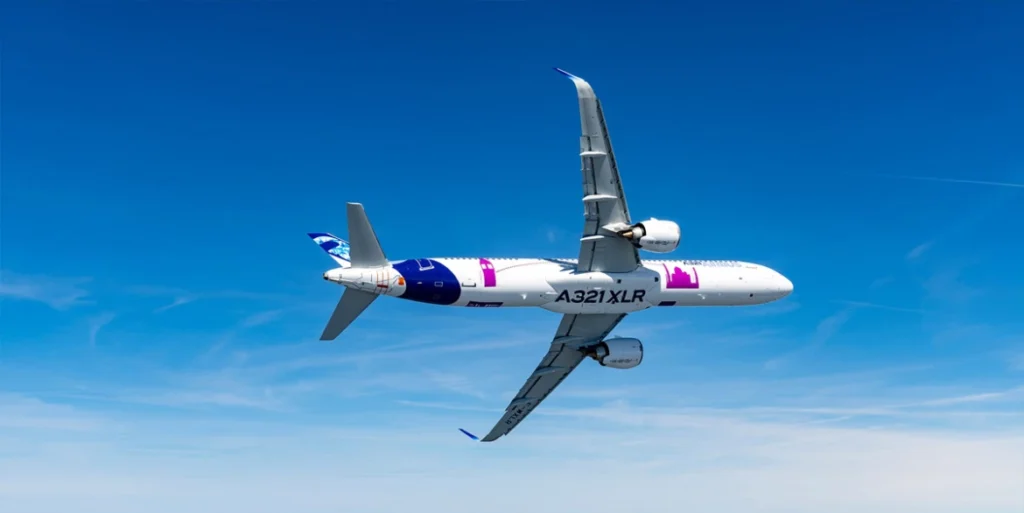The US Federal Aviation Administration (FAA) has proposed special conditions for the Airbus A321XLR.
This has come about because the Extended Long Range (XLR) variant will have a novel or unusual design feature. The design incorporates an integral rear center tank (RCT).
The current airworthiness regulations do not contain adequate or appropriate safety standards for the novel, ‘non-standard’ design.
Applicable regulations do not allow for fire-safety performance of the fuel-tank skin or structure in a post-crash external fuel-fed ground fire.
Accordingly, the proposed special conditions now set by the FAA contain the additional safety standards considered necessary to establish a suitable level of safety.

Background: Integral Fuel Tank Configuration
On September 16, 2019, Airbus applied for an amendment to an existing Type Certificate. This was to include the new Model A321neo XLR series airplane.
The proposed Airbus Model A321XLR series airplane incorporates an integral RCT. This tank is a “center” fuel tank, which if approved, would be located in the airplane fuselage rather than in its wings.
Essentially, it would be in an area of the lower section of the fuselage. It would partially replace the aft cargo compartment of the basic A321 airplane.
The top of the tank would be directly below the floor of the passenger cabin. The fuel tank would be ‘‘integral’’ to the airplane, in that its walls would be part of the airplane structure.

Concerns with the Integral Tank
The FAA expressed a concern with the location of the integral RCT. Essentially, it is installed in a location that may be exposed to the direct effects of post-crash ground fires.
The current airworthiness standards applicable to the Model A321XLR do not contain specific standards for post-crash fire-safety performance of fuel-tank skin or structure.
In short, an integral fuel tank was not envisaged when the FAA originally set out requirements. These requirements are laid out to ensure the protection of aircraft occupants in the event of fire.
Traditionally, main and auxiliary fuel tanks are located in the wing assemblies or within cargo holds.
Unlike the proposed integral RCT on the A321XLR, these ‘traditional’ fuel tanks are covered under existing regulations. They are not expected by the FAA or manufacturers to be exposed to the direct effects of post-crash ground fire.

Proposed FAA Conditions
The FAA will issue, after notice and comment, a set of special conditions. These conditions specifically address the novel or unusual aspect of the A321neo XLR’s integral RCT.
One such condition involves the assurance that relevant parts of the fuselage resist penetration from an external fuel fed fire.
Other concerns centre around post-crash fire occupant survivability in the event of a fuel tank breach or structural failure.
Thus, the proposed special conditions address standards for post-crash fire-safety performance of fuel-tank skin or structure. They propose a requirement to prevent the ignition of fuel vapor during an external fuel-fed ground fire.
The FAA intends for this requirement to suitably protect aircraft occupants in the event of such a fire.
Industry analysts have questioned whether the proposed changes set out by the FAA may restrict the range of the aircraft.
According to a Reuters report, Airbus have reiterated that there would be no significant impact from the proposed requirements.
The FAA’s decision, while incorporating fire safety measures, allows Airbus to progress with the A321XLR program.
With this hurdle cleared, the manufacturer can proceed with deliveries of the A321XLR. Airbus has previously delayed the delivery schedule until the second quarter of 2024.

Click the banner to subscribe to our weekly newsleter.

Click the photo to join our WhatsApp channel so then you can stay up to date with everything going on in the aviation industry!









